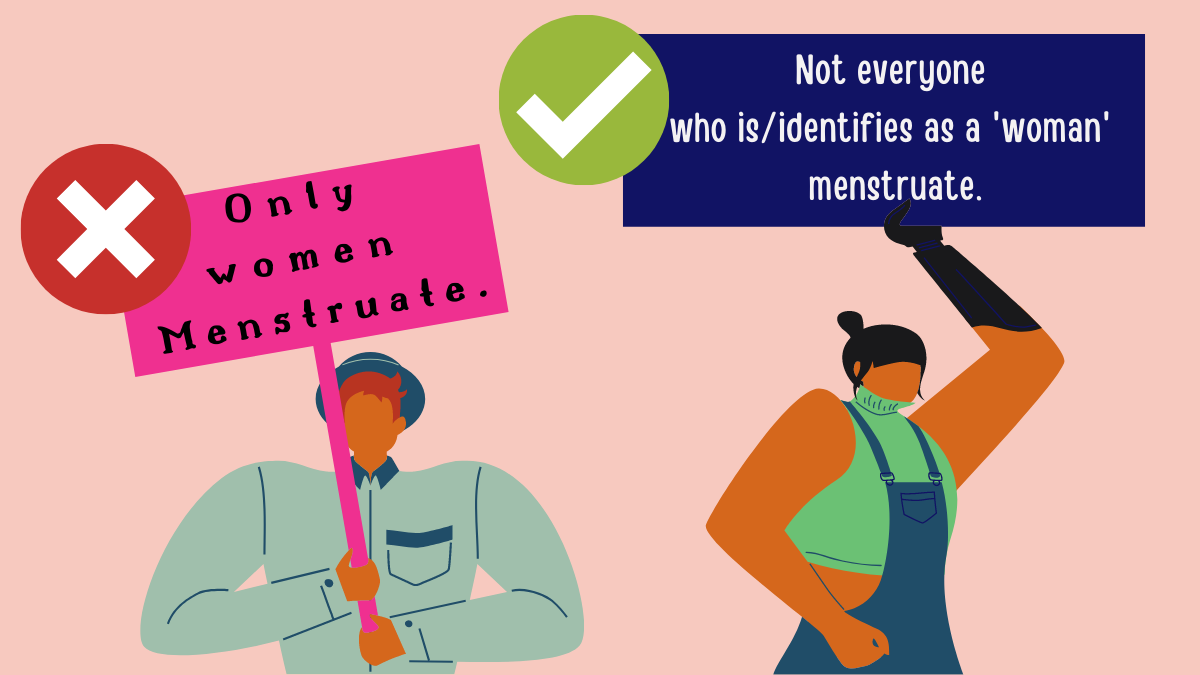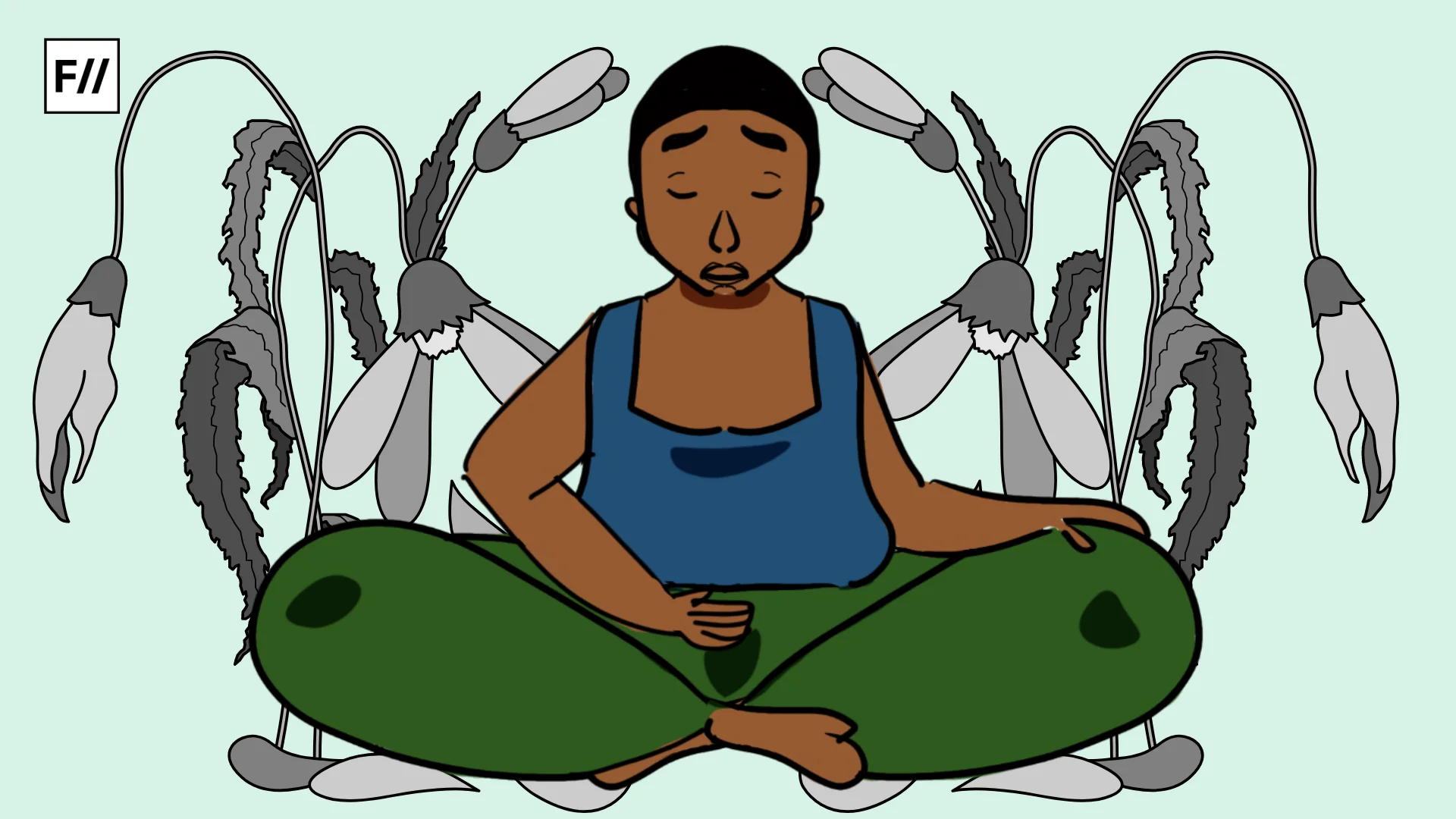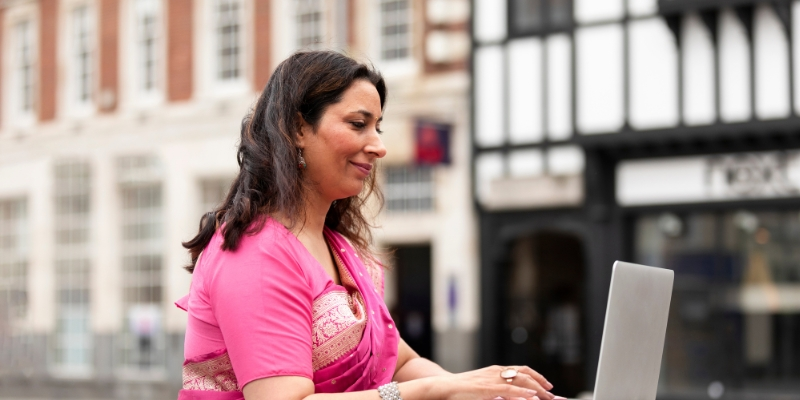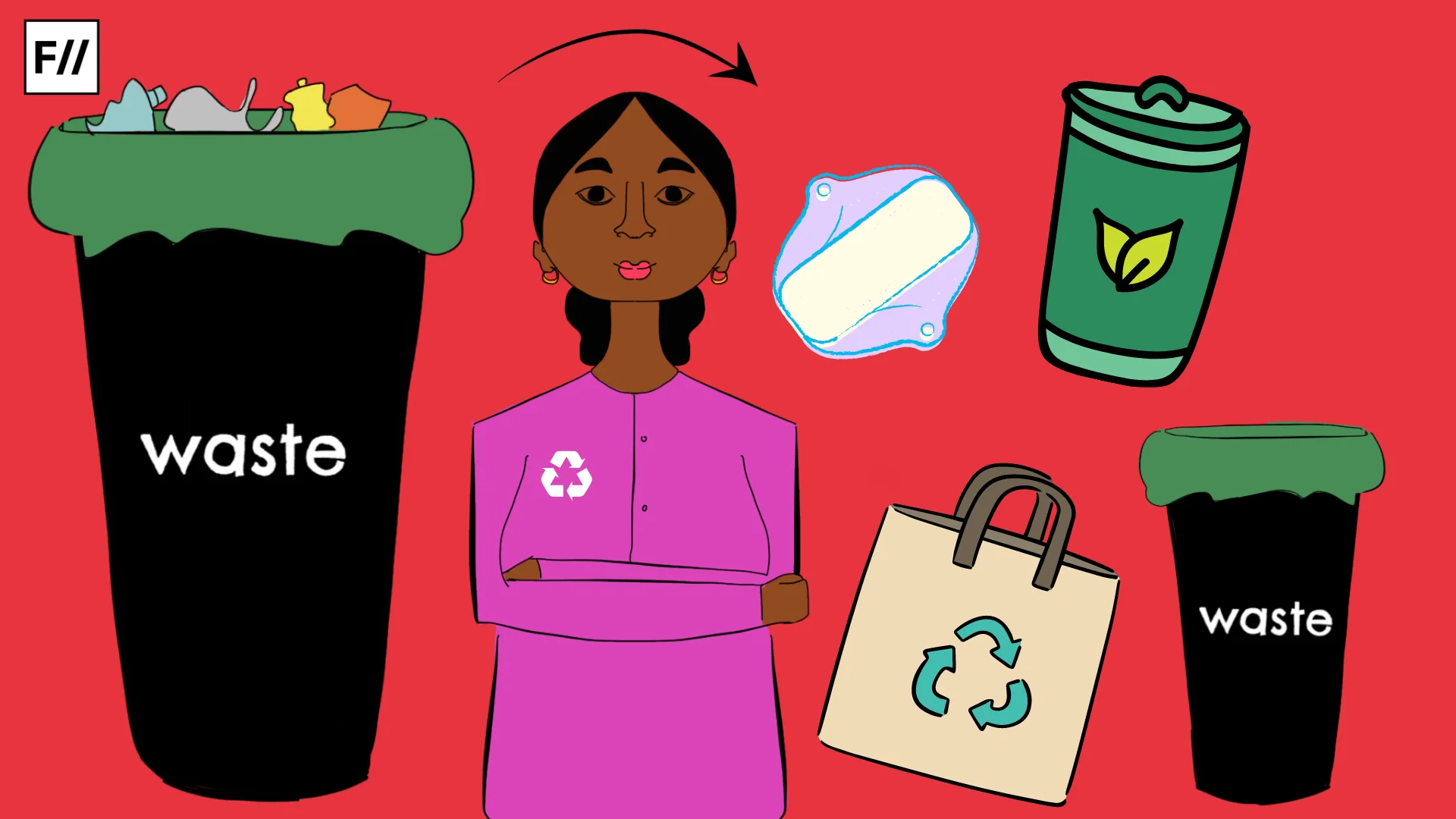Menstruation and menstrual hygiene in India has fairly been a topic of discussion in the last few years within public spheres and civil society; although menstruation even today is discussed insidiously, mostly among women and close circles. The efforts to invisibilise menstruation, both from our textbooks and in our everyday lives, especially in spaces with male presence, result due to the overarching socio-cultural taboos attached to it. This stigma around menstruation gets produced and reproduced through oral narratives, patriarchal misogyny within institutions like family, religion, education, pop culture and the lack of adequate dissemination of reliable information among children and adults due to poor governance.
1. Myth: Only women menstruate.
Fact: Not everyone who identifies as a woman menstruates. For example, there are transgender women who do not menstruate. On the other hand, there are transgender men and non-binary people who menstruate but do not identify as women. Menstruation isn’t just a ‘woman’s issue’. It is a human issue.
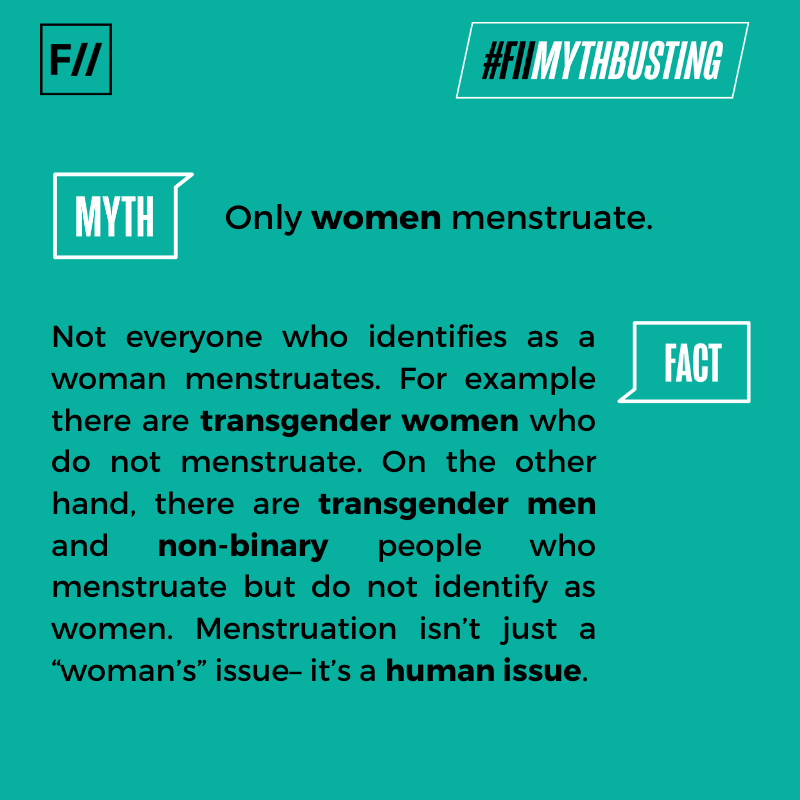
2. Myth: People cannot use menstrual products like tampons or menstrual cups if they have not had sexual intercourse.
Fact: Tampons and menstrual cups are for everyone! Hymen is an elastic tissue which is extremely flexible and is not necessarily harmed by using the tampon. The idea of an intact hymen which should not be ‘ruptured’ by menstrual products comes from the outdated notions of ‘virginity’.
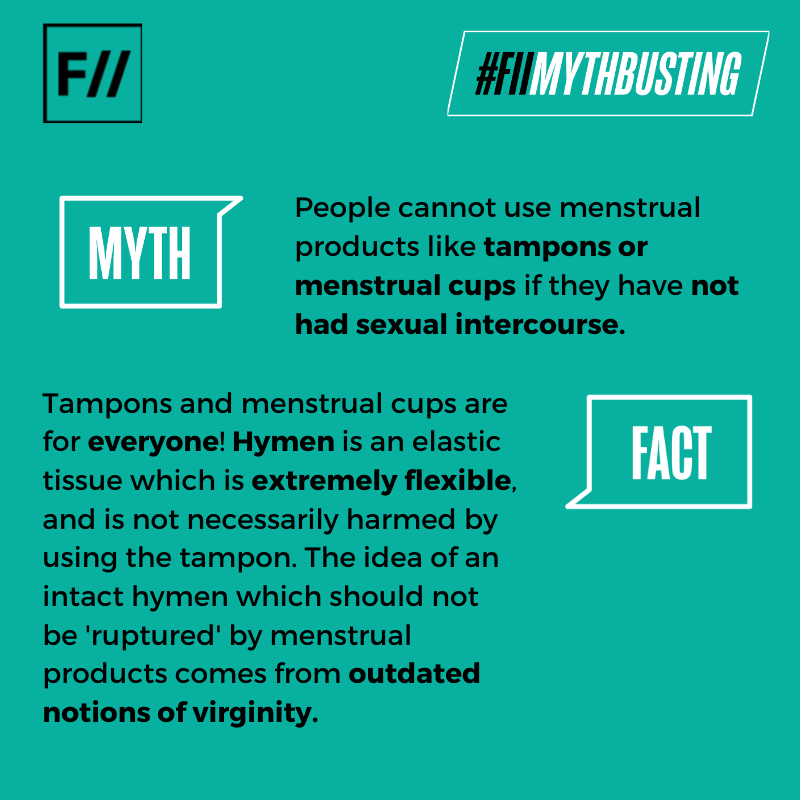
3. Myth: People who menstruate pee and bleed from the same hole.
Fact: In the female reproductive system, the first hole on top which is underneath the clitoris is only for urination. Below the urethra lies the vagina, which is where menstrual blood comes out from.
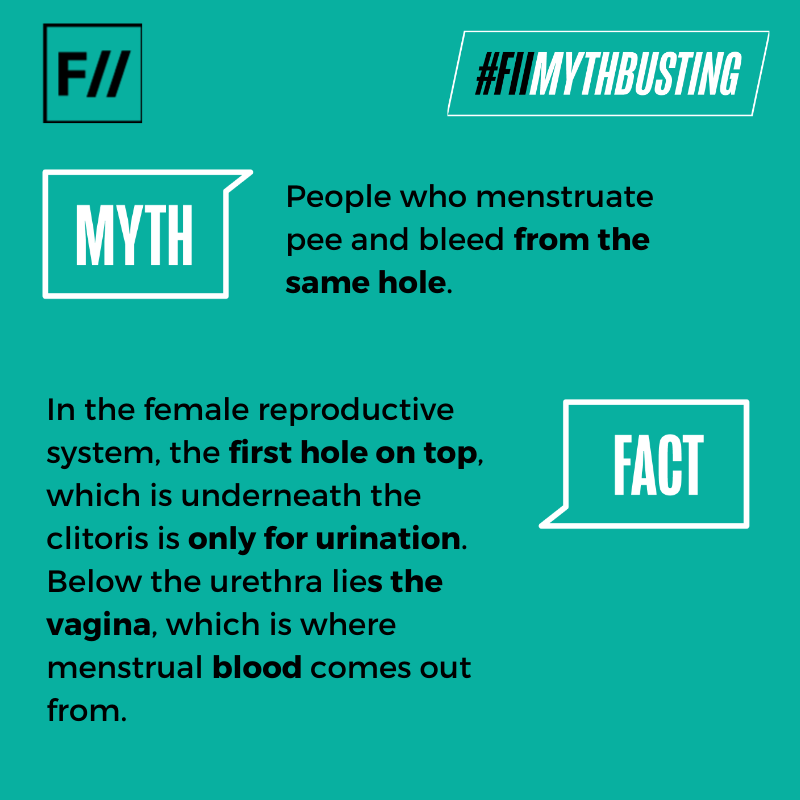
4. Myth: Every woman gets PMS and it always manifests in anger.
Fact: Only 75% of menstruating women experience PMS in some combination. Most experience mild symptoms. 1 out of 20 women experience worse symptoms, particularly depression and anger. These women meet the criteria for a condition called premenstrual dysphoric disorder or PMDD.
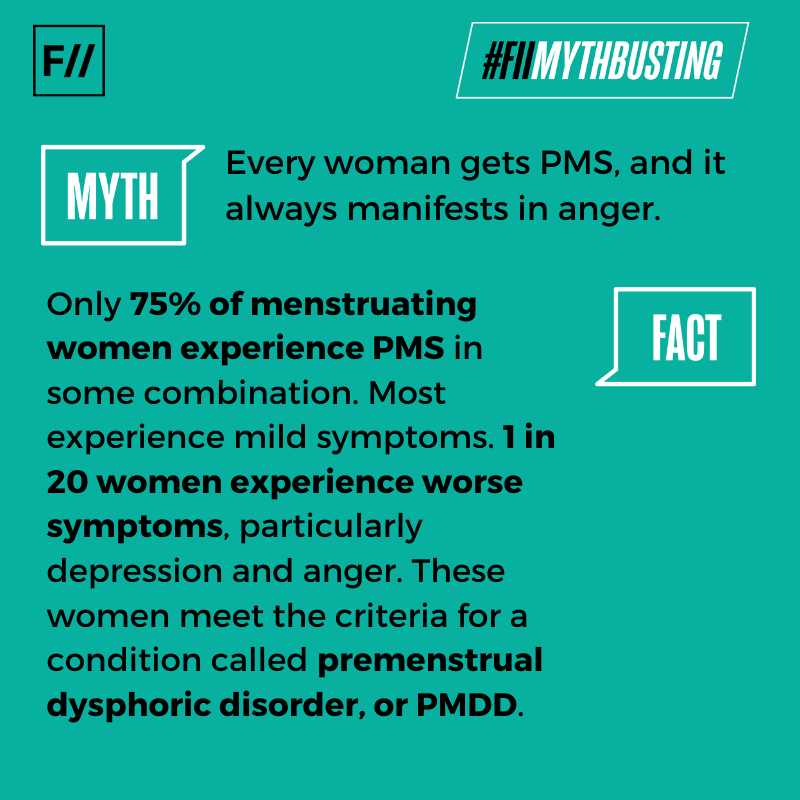
Also read: Period Positivity: What More Can We Do As Menstrual Health Educators?
5. Myth: Women are ‘impure’ during their period and should not enter temples or the kitchen during that time.
Fact: Menstruation is a natural physiological process, but it is wrongly considered to be ‘ritually impure’ as per casteist, patriarchal religious beliefs. “The social exclusion of women based on menstrual status is a form of untouchability which is an anathema to constitutional values,” asserted Justice DY Chandrachud in his judgement in the Sabarimala Temple Entry Case.
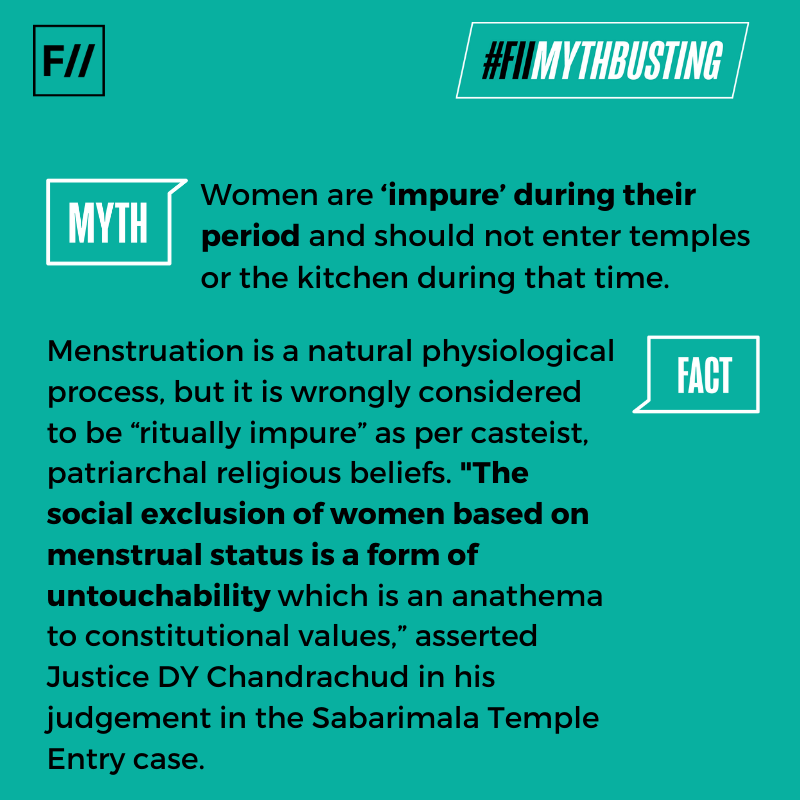
6. Myth: You can’t get pregnant on your period.
Fact: You can get pregnant during your period if you have sex without reliable birth control. It is possible that vaginal bleeding during ovulation could be mistaken for the start of a period, and this is the time when you’re most fertile. The other thing to remember is that sperm can live for up to 5 days after ejaculation. So, particularly toward the end of your period, your chances of becoming pregnant will increase.
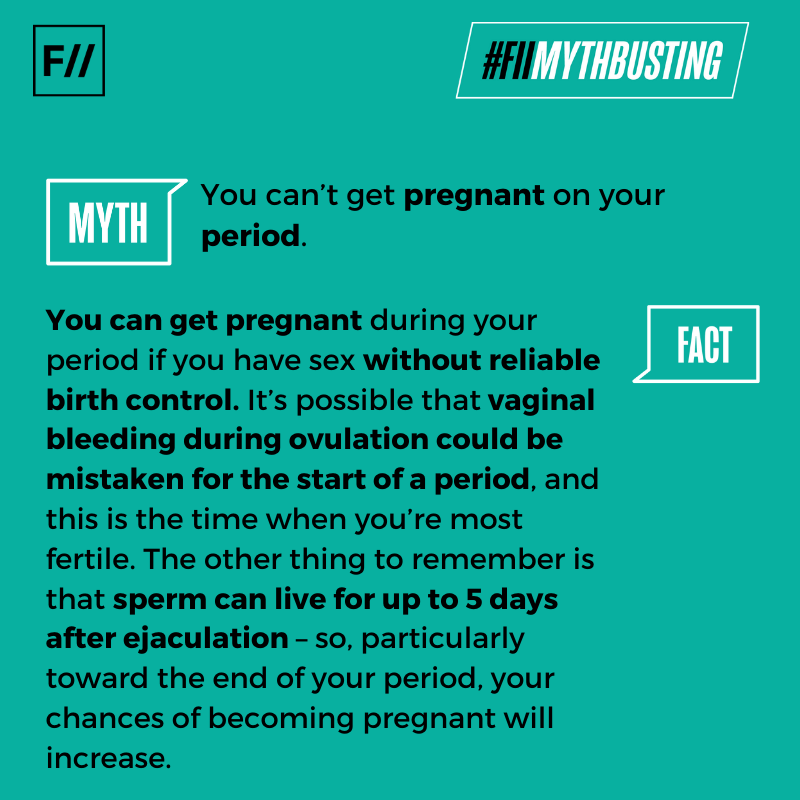
7. Myth: Periods are supposed to be extremely painful.
Fact: While some due to cramping can be expected, estremely painful periods shouldn’t be the norm. They could be the result of conditions such as secondary dysmenorrhoea and endometriosis. Period pain is also often downplayed or ignored by health professions and further enables the culture of gender bias in medical diagnosis.
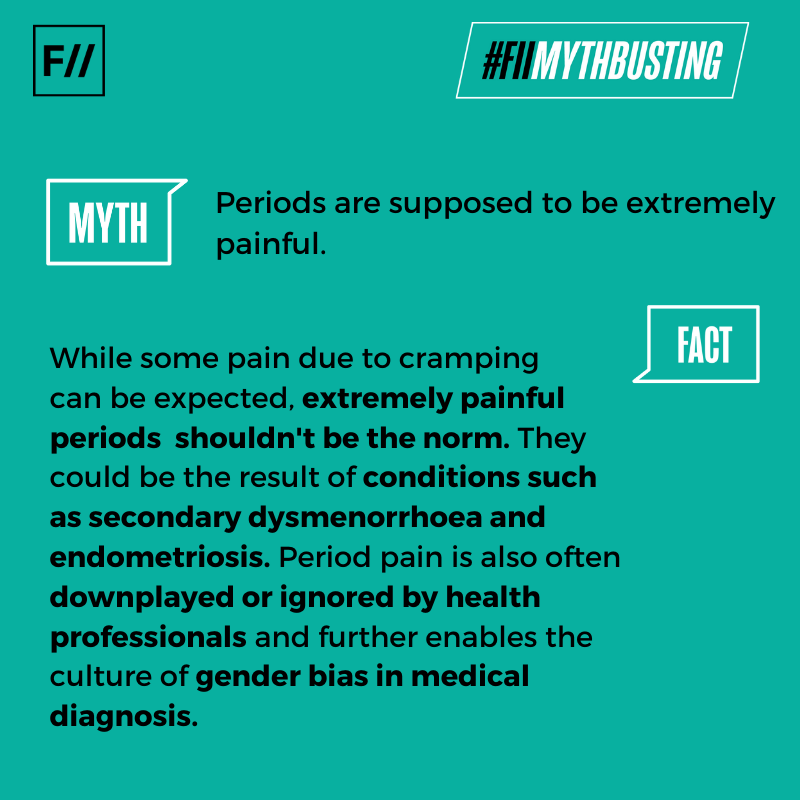
Also read: Absence Of Menstrual Hygiene Management In NEP 2020
8. Myth: Exercising during your period is bad for you.
Fact: People who menstruate can totally exercise on their period! In fact, exercising helps ease menstrual cramps. Walking, swimming, doing yoga and other similar non-strenuous exercises help alleviate menstrual cramps and can even boost your mood and reduce fatigue.
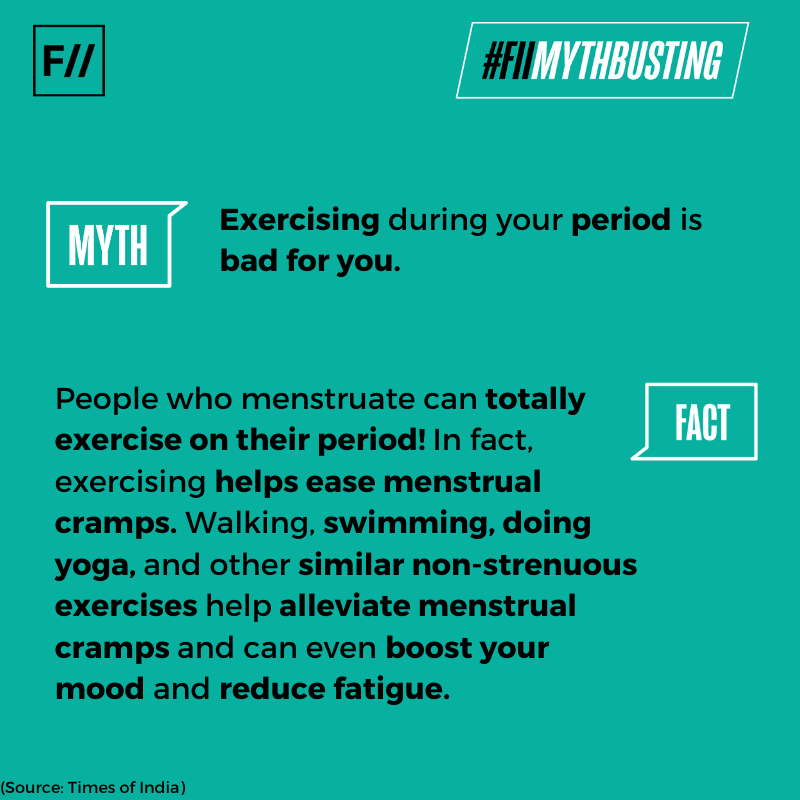
About the author(s)
Feminism In India is an award-winning digital intersectional feminist media organisation to learn, educate and develop a feminist sensibility and unravel the F-word among the youth in India.
